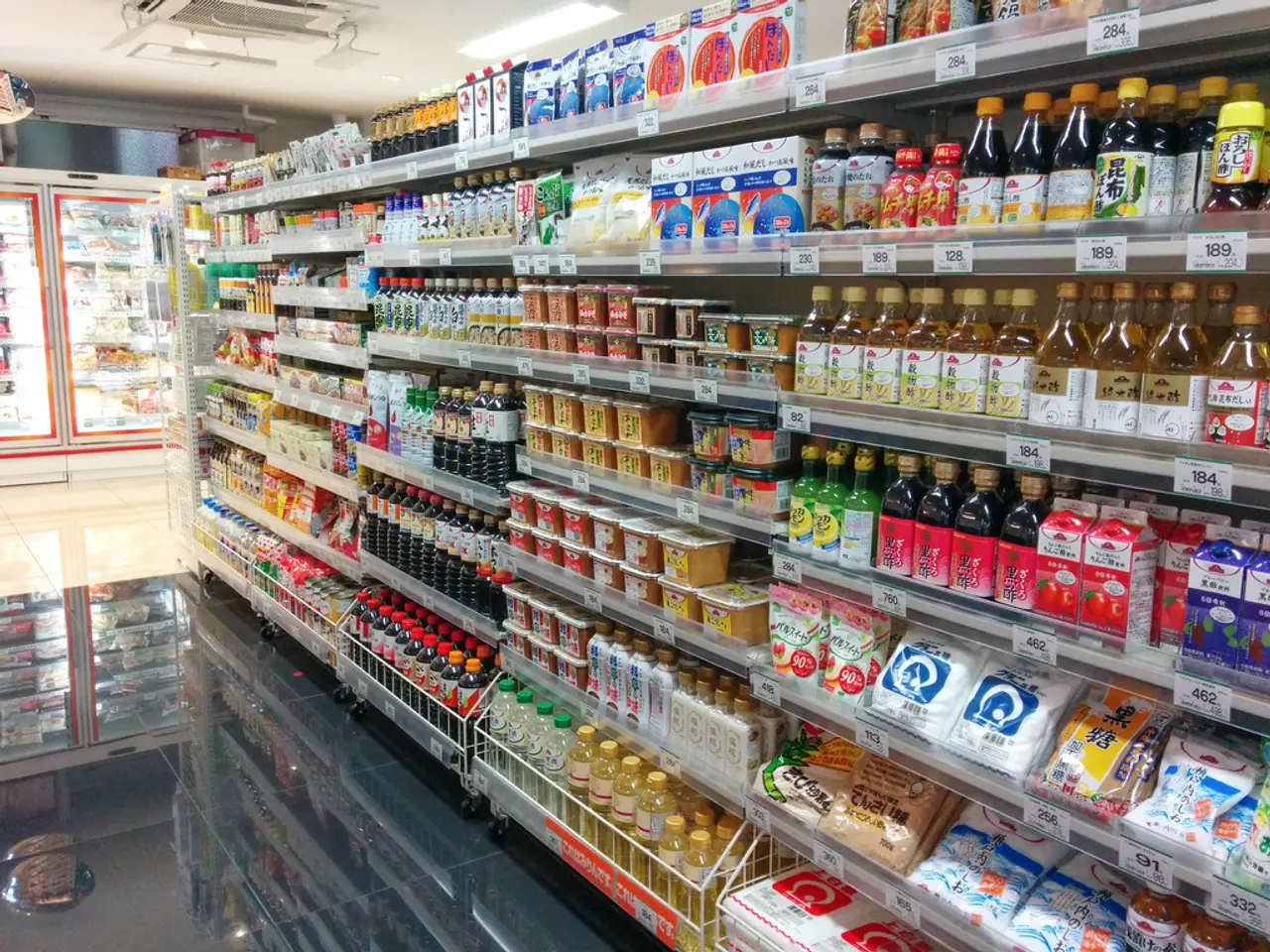Merger negotiations between Grab and GoTo hit a roadblock due to escalating antitrust concerns
The potential merger between Grab and GoTo Group in Indonesia is facing significant antitrust challenges, as the combined entity would dominate Southeast Asia’s ride-hailing and food delivery markets [1][2][3]. This merger, if approved, could reshape the region’s digital economy, raising concerns about market dominance, reduced competition, and potential harm to consumers.
Indonesia’s antitrust agency, the Indonesia Competition Commission (KPPU), has explicitly indicated it would scrutinise the deal for risks and urged both companies to ensure the merger would not create anti-competitive outcomes [3]. The challenge lies in balancing competing interests, as consolidation risks entrenching monopolies and exacerbating inequality among ASEAN markets [2].
If the merger goes ahead, it would consolidate the two largest players in the region’s digital economy segments (ride-hailing, food delivery, and other on-demand services) [1][2]. This consolidation could harm consumers through higher prices, reduced service quality, and less innovation [1][2]. These concerns have previously stalled merger talks and remain a key barrier despite ongoing discussions over several years [1].
The merger would create a mega-platform with significantly increased market power, potentially altering competitive dynamics across multiple countries. While this could bring efficiencies and scale benefits for Grab-GoTo, it might also stifle smaller competitors and innovation within the fast-growing digital services ecosystem in Indonesia and neighbouring markets [1][2]. Given Indonesia’s pivotal role in the region, regulatory outcomes could set precedents for digital market consolidation policies across Southeast Asia.
It is worth noting that the regulatory review process in Indonesia differs significantly from other regional jurisdictions, particularly in terms of timing and process [4]. The review is conducted on a post-transaction basis by the KPPU, without the authority to block a merger before completion unless parties engage in pre-merger consultation [5].
The regulatory framework in Indonesia appears designed to prevent market concentration of this nature, suggesting that approval would require extraordinary circumstances or substantial remedies [4]. The challenge lies in the fact that Indonesia does not explicitly recognise the 'failing firm' defense, which might be a justification for such concentration due to the financial struggles of both companies [4].
The merger, if approved, would create unprecedented levels of market concentration in multiple sectors, particularly in ride-hailing, on-demand food delivery, digital payments, and e-commerce and logistics [1][2]. This consolidation could fragment the region's digital economy and undermine integration efforts, as divergent approaches to platform consolidation among ASEAN member states could emerge [6].
ASEAN needs to strike a balance between national control and regional competitiveness, as larger, regionally integrated platforms may be better equipped to compete with dominant Chinese and Western tech giants [7]. The challenge remains in ensuring that consolidation benefits consumers and fosters innovation, rather than entrenching monopolies and exacerbating inequality.
In conclusion, the Grab-GoTo merger faces regulatory pushback due to antitrust concerns over market dominance, and its impact on the Southeast Asian digital economy would be substantial but could either drive scale efficiencies or reduce competitive diversity, depending on regulatory conditions and market responses [1][2][3]. The implications of the merger's approval or rejection extend beyond Indonesia, potentially shaping the future of the region's digital economy.
[1] The Straits Times. (2022, March 17). Grab-GoTo merger faces regulatory hurdles in Indonesia. Retrieved from https://www.straitstimes.com/business/companies-markets/grab-gotogroup-merger-faces-regulatory-hurdles-in-indonesia
[2] Tech in Asia. (2022, March 16). Grab-GoTo merger: What it means for Southeast Asia's digital economy. Retrieved from https://www.techinasia.com/grab-gotogroup-merger-southeast-asia-digital-economy
[3] Nikkei Asia. (2022, March 17). Indonesia antitrust agency to scrutinise Grab-GoTo merger. Retrieved from https://asia.nikkei.com/Business/Companies/Indonesia-antitrust-agency-to-scrutinise-Grab-GoTo-merger
[4] Nikkei Asia. (2022, March 16). Indonesia's regulatory framework poses challenges for Grab-GoTo merger. Retrieved from https://asia.nikkei.com/Business/Companies/Indonesia-s-regulatory-framework-poses-challenges-for-Grab-GoTo-merger
[5] Reuters. (2022, March 17). Indonesia's antitrust agency to probe Grab-GoTo merger. Retrieved from https://www.reuters.com/business/indonesia-antitrust-agency-probe-grab-gotogroup-merger-2022-03-17/
[6] The Diplomat. (2022, March 17). The Grab-GoTo Merger and Southeast Asia's Digital Economy. Retrieved from https://thediplomat.com/2022/03/the-grab-gotogroup-merger-and-southeast-asias-digital-economy/
[7] The Straits Times. (2022, March 17). Larger, regionally integrated platforms may be better equipped to compete with dominant Chinese and Western tech giants. Retrieved from https://www.straitstimes.com/business/companies-markets/larger-regionally-integrated-platforms-may-be-better-equipped-to-compete-with-dominant-chinese-and-western-tech-giants
- The Indonesian Competition Commission (KPPU) has expressed concern over the potential merger between Grab and GoTo Group, stating they will scrutinize the deal for risks and urge both companies to prevent anti-competitive outcomes.
- The regulatory framework in Indonesia is designed to prevent market concentration of this nature, suggesting that approval for the merger would require extraordinary circumstances or substantial remedies.
- The merger could create unprecedented levels of market concentration in numerous sectors, including ride-hailing, on-demand food delivery, digital payments, and e-commerce and logistics, which could potentially fragment the region's digital economy and undermine integration efforts.
- Balancing national control and regional competitiveness is crucial, as larger, regionally integrated platforms may be better equipped to compete with dominant Chinese and Western tech giants, but risk entrenching monopolies and exacerbating inequality.
- The Grab-GoTo merger faces regulatory pushback due to antitrust concerns over market dominance, and its implications extend beyond Indonesia, potentially shaping the future of the region's digital economy by driving scale efficiencies or reducing competitive diversity, depending on regulatory conditions and market responses.




